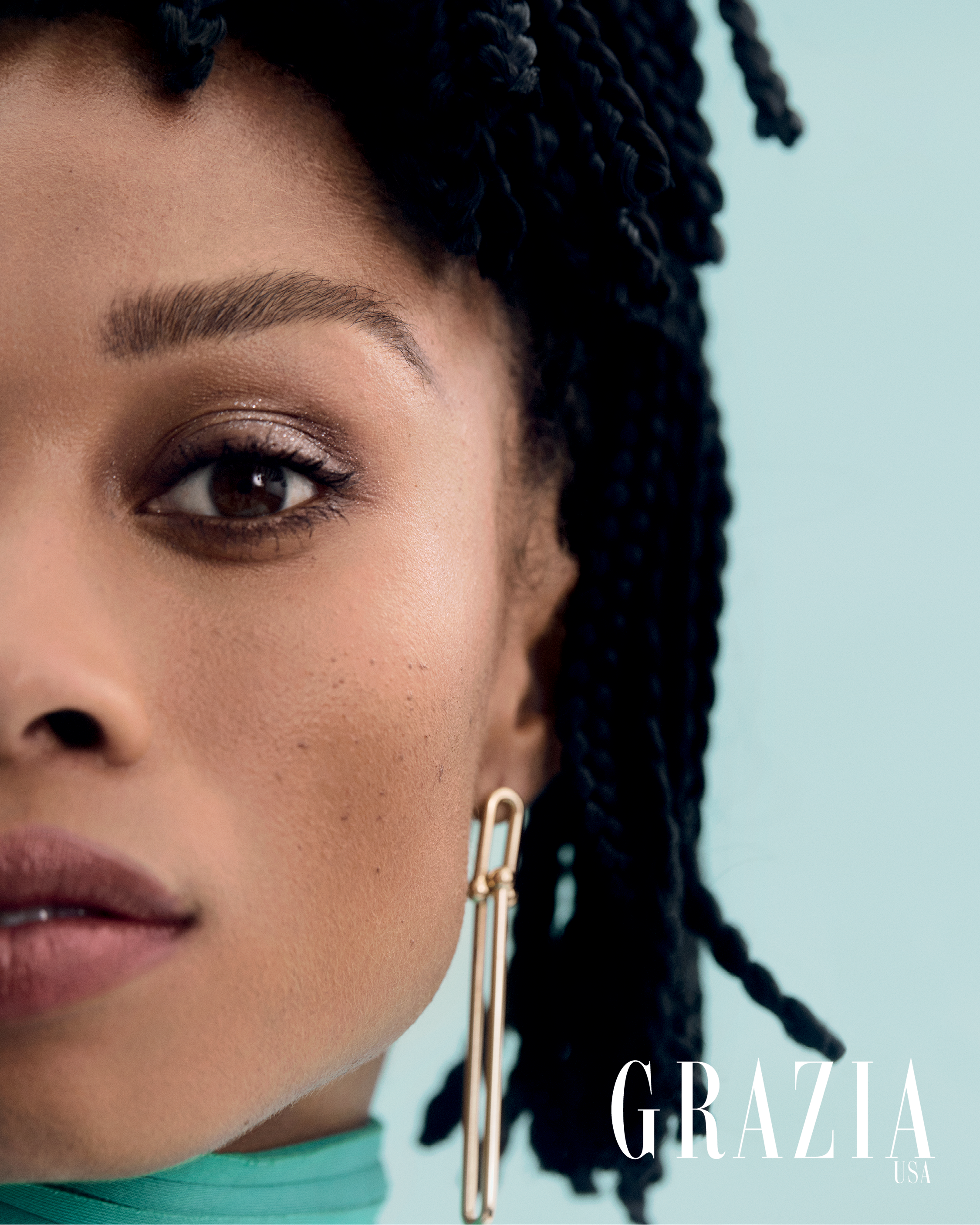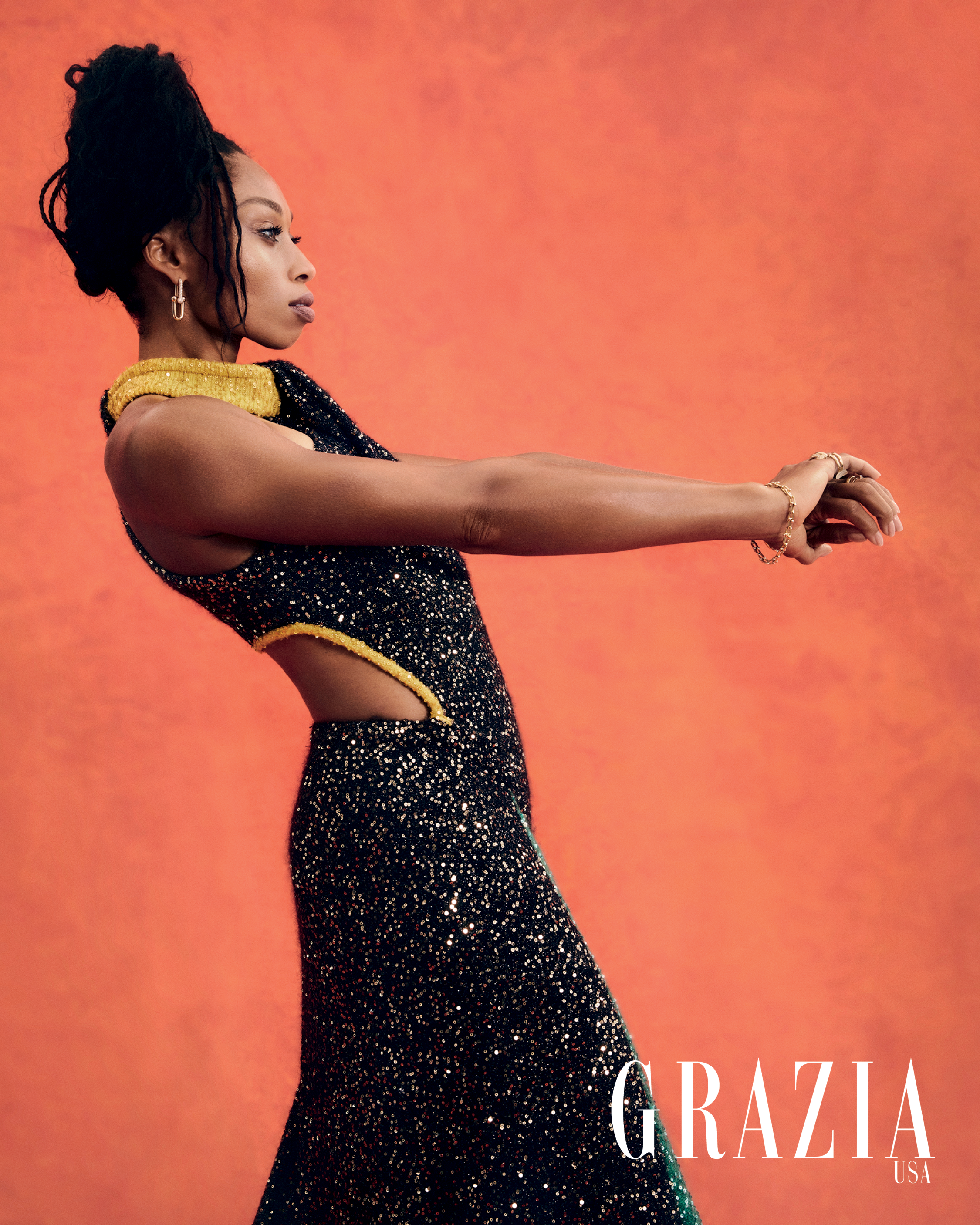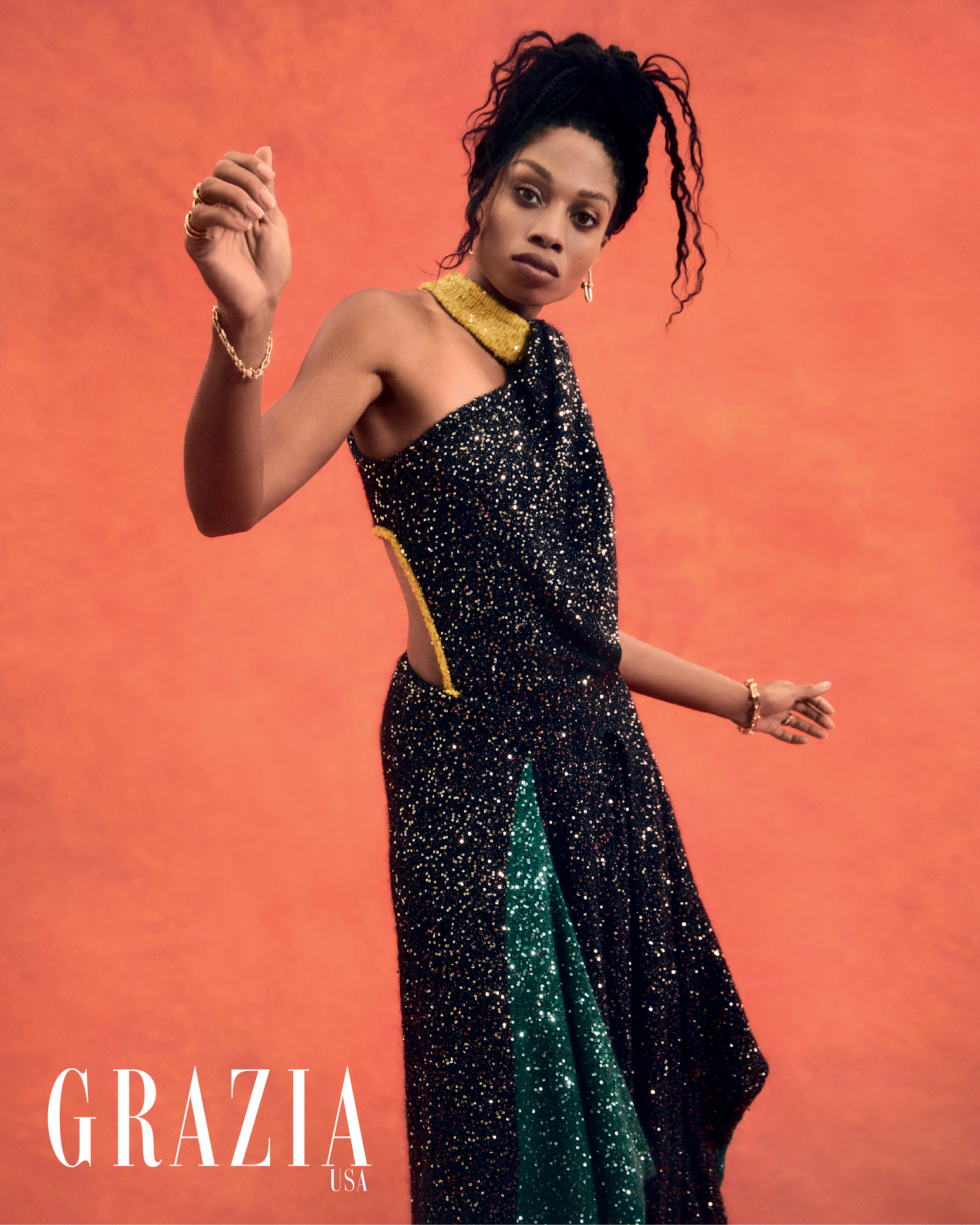
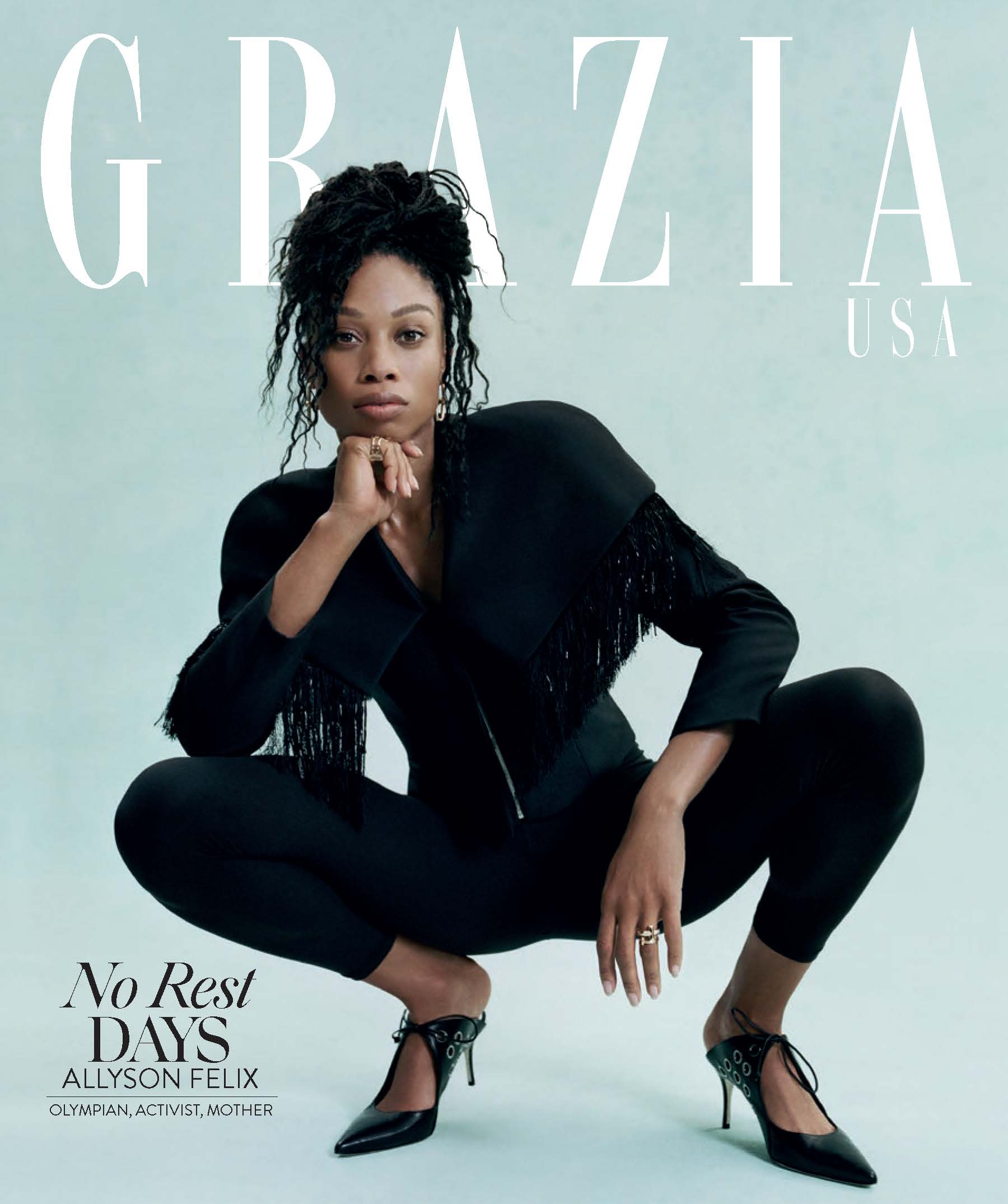
BY MELISSA CRONIN
PHOTOGRAPHY BY OLIVIA MALONE
STYLING BY REBECCA RAMSEY
“Mommy, you have makeup on your eyes!”
“Yes, I have makeup on my eyes. Do you like it? It’s 8:00 p.m. on a Wednesday night in a warehouse deep in downtown L.A. Just over one week ago, runner Allyson Felix was in Tokyo, winning the gold medal that would make her the most-decorated American track and field star of all time. Tonight, she’s wrapped in a robe and balancing a container of ceviche in one hand while FaceTiming with her daughter, Camryn (“Cammy”), 2, as the business of a high-fashion photo shoot whirs around her. (Yes, she’s wearing gorgeous eye makeup by makeup artist Autumn Moultrie.)
Felix, 35, is a pillar of calm and focus as she multitasks, shifting between roles and embodying multitudes even on a stage that isn’t her typical arena (or stadium, for that matter). She’s a superwoman and an everywoman; at the same time, an icon and a mom. A hero, either way.
Watching her, effortless, in front of the camera, someone on set shouts out, “Goddess!” No word seems more apt as she stands, regal in a teal Marc Jacobs gown. (More than one person literally bows down at the sight, only in half-jest.) But part of Felix’s supernatural power is how, in transcending limitations and breaking boundaries, she reminds all women of our own strength. Her achieving the previously impossible makes everything seem more possible to the rest of us—a mantle that at times lays heavy, and has come with a lot of pain and sacrifice along the way to joy and freedom.
“One of my first memories was in elementary school,” Felix recalls in a Zoom conversation with Grazia USA days after the shoot. She was in Paris for the Diamond League races there. (No days off, or nearly none.)
“In P.E., the boys and girls would run together,” she continues. “We would do this lap around the asphalt of our parking lot. I always remember that when we would do that, I would be up with the boys. I wasn’t in any type of organized sport or anything, but I do come from a pretty competitive family, and it was just always so much fun to think, I’m beating the boys.”
Even then, for Felix success was defined within the framework of what was possible for a female—a paradigm that shifted a bit in 1996, when the Magnificent Seven dominated the gymnastics field at the Olympic Games and Dominique Dawes, then 19, became the first Black woman to win gymnastics gold.

Felix was 10 years old and not yet participating in sports of any kind, but the occasion was an epiphany. “I just thought, like, Wow, here’s a young girl who looks like me and she’s amazing and phenomenal and doing something really cool,” Felix remembers. The power of representation, of seeing another young girl redefine the boundaries of possibility, inspired her to excel—even if it was somewhat misdirected at first.
“I tried to, like, order a balance beam, and I had no experience, nothing,” Felix laughs. “This was back in the days of the phone book and looking things up. My mom was like, ‘What are you doing?!’ But I was way too tall and not flexible. So I knew that wasn’t going to be my thing.”
Soon enough, though, she found it. Just weeks into her first-ever track season as a freshman at Los Angeles Baptist High School, Felix placed seventh in the 200 meters at the highly competitive California Interscholastic Federation State Meet. By the time she left as a senior, she would run the same distance in 22.11 seconds during a race in Mexico City—then the fastest-ever time clocked by a high school female.
From there, things moved quickly—literally. Technically still a “junior” runner, Felix attended her first Olympics at Athens in 2004, walking away with her first medal (a silver, in the 200 meters). Shattered records, medals, and the weight that they carried would follow.
“Definitely toward the end of high school it was just really about making sacrifices,” she admits. “Knowing that I had the potential and then really dedicating myself. Less of the hanging out and more of a structured program and all of that. That continued on through college, and definitely, once I was a professional it was a whole other level.”
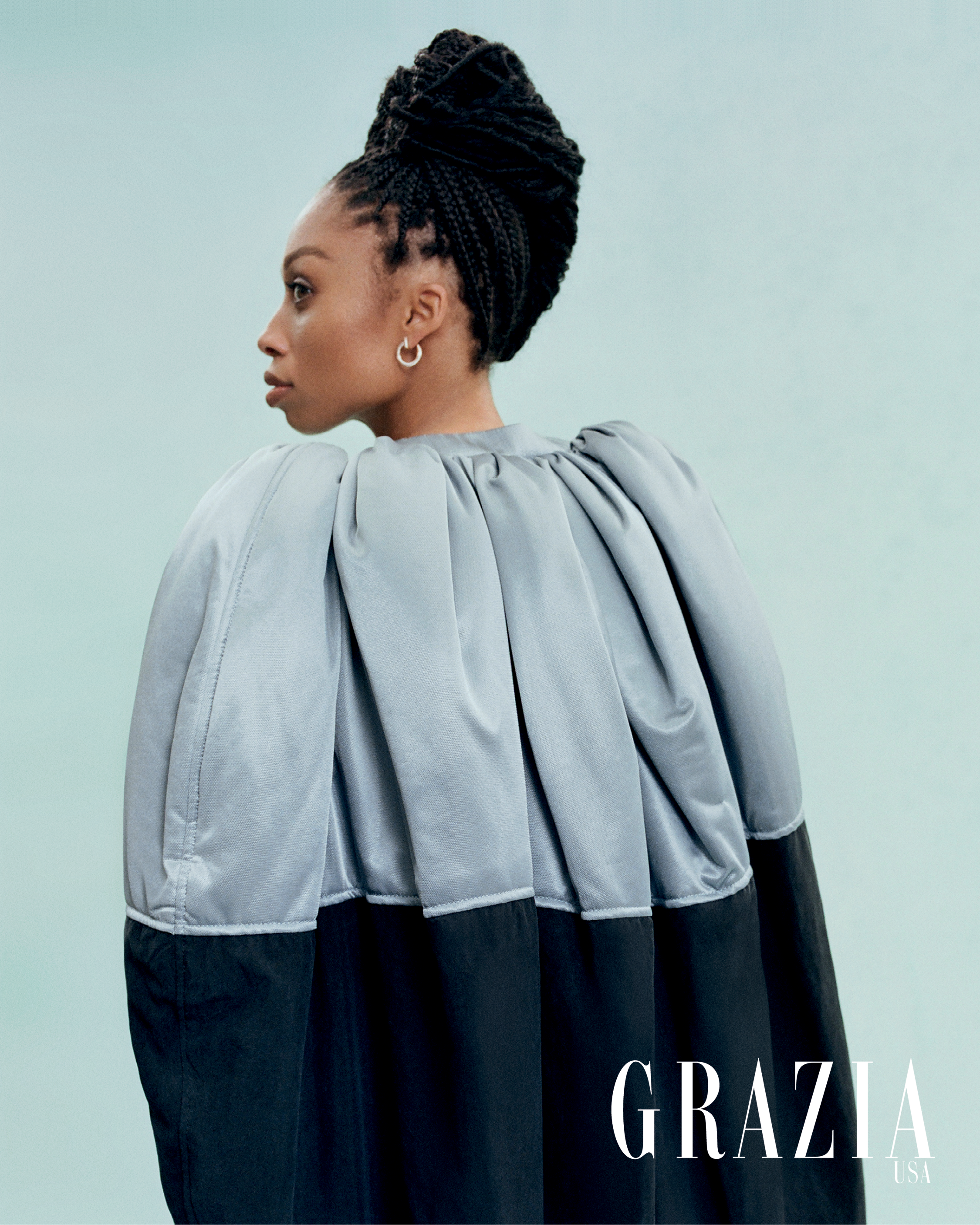
“I didn’t have the traditional college experience because I was going to Europe to compete, for example, and I was living this different lifestyle, which definitely started to take place around 16, 17 years old,” she says.
Too young to truly consider or question the path that was unfolding in front of her, all she could do was to run down it as fast as she could. In running, a moment of hesitation—especially at the start—can destroy your chances before you’ve even started.
“It can be easy to kind of lose yourself in it a bit, because everything is so structured and everything is so competitive,” she reveals. “You are on a very regimented diet and training program and when you’re going through it, it can feel pretty lonely. It’s pretty isolating because running is an individual sport.”
Felix missed out on birthdays, parties, and the milestones in friends’ and family members’ lives as she was training and traveling the world to compete. It would have been easy, looking back, to get chewed up in that machine and to be spit back out a drained, defeated shadow self (as happens, tragically, to so many athletes. Especially to female ones. Even more especially to female ones of color.).
What kept Felix centered and sane? “I do feel like it was family,” she says. “It was a support system that really helped me to see what my value was and what my worth was and that all the outside noise didn’t matter. You know, to stay true to myself.”
Key in that inner circle was her longtime boyfriend, fellow sprinter Kenneth Ferguson, who she married in 2018. She would give birth to Camryn later that same year. After decades of devoting herself to her sport, Felix had finally found the confidence and strength to build a life on her own terms. For any woman, that is still a radical act.
Whether an Olympian or office drone, this inner dialogue will sound familiar to you. “I felt like starting a family couldn’t even be an option for me until I had accomplished everything that I had set out to do,” she explains. “It was like, OK, once you’re in this place where you’ve done enough, then you can start to explore that. But also, you’ve got to be OK with the possibility of not accomplishing anything else after; to be good with where you ended up. I just hated that.”
It’s a conundrum that any woman can relate to—even those of us who aren’t the GOAT—but one that was compounded by the pressures of her sport. “Just this idea that if you did have kids, it was on to the next chapter for you,” Felix says, referencing what fellow runner Phoebe Wright has called “the kiss of death” in the sport.
Too often, our culture consigns women to the suffocating confines of one particular defining role. You can be a career woman, or you can be a mom. You can be a powerful athlete, or you can be a deeply feminine woman who loves jewelry, fashion, and makeup. You can be driven to succeed on your own, or you can give yourself to someone else. It’s arbitrary and it’s maddening; and yet, it’s so pervasive that many of us don’t even stop to question it.
Indeed, Felix had been fully prepared to close the “runner” chapter of her life in favor of a new one when she realized she could write her own story. “I got to a point where I was like, OK, I’ve done a lot of what I wanted to do, so this is a good point [to start a family],” she explains. “And then I think it was probably around that same time that I realized that I didn’t have to reach that point. Like, This is kind of a made-up thing, the feeling that you have to get to a certain point” to do it. “I wish I could have understood that earlier, because it took a long time to get to that space,” she continues. It was once she got there, though, that the battle truly began.
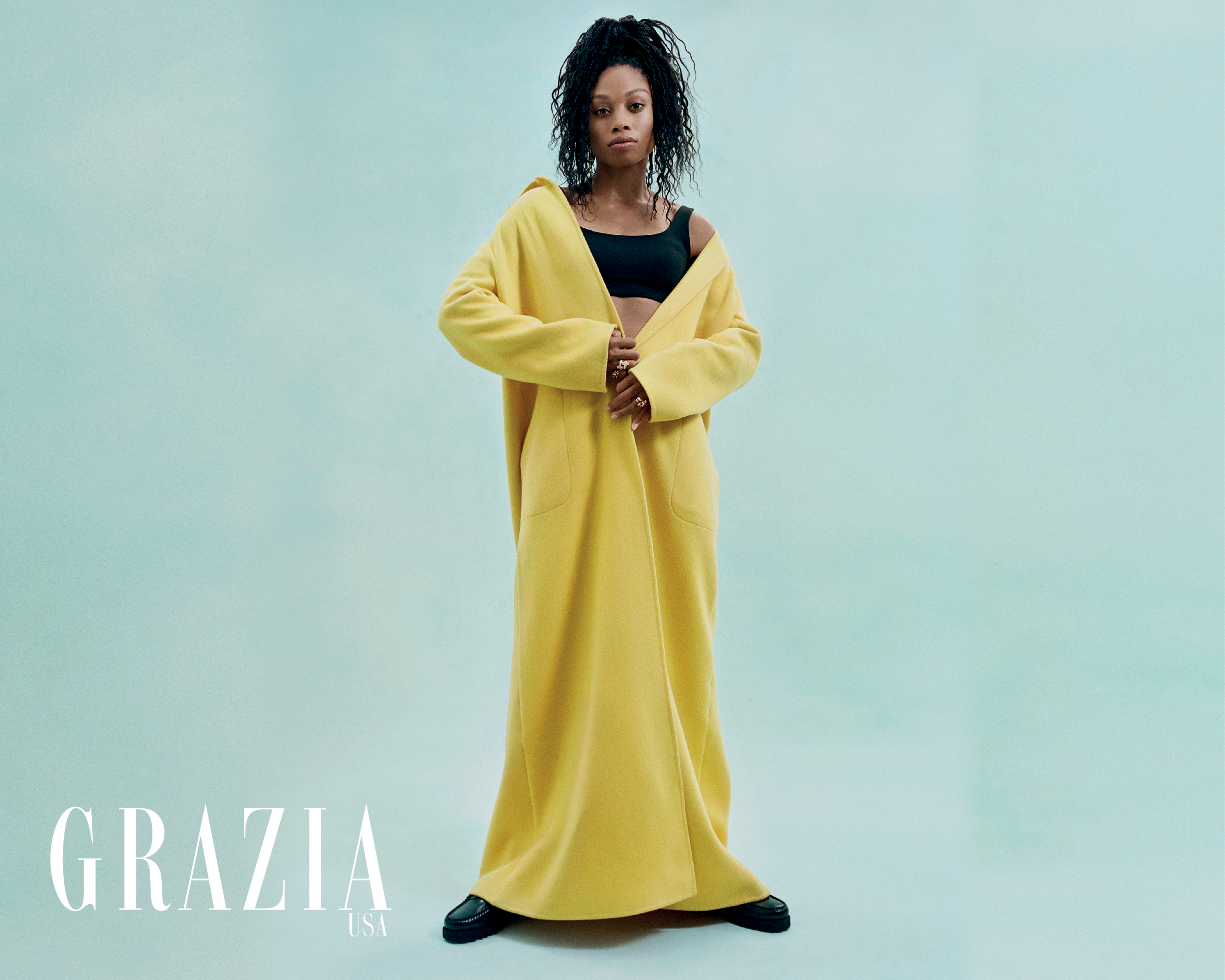
I never really saw examples— prominent examples—in my sport of women who did both. Not that it didn’t happen, but I guess they weren’t really celebrated. I would love for that narrative to be changed.” We all have the opportunity to help do that. Simply by living authentically, speaking honestly, and looking for ways to support and connect with other women—following Felix’s example—we can harness our own power to effect phenomenal change, for our society at large and for ourselves. While records may fall and new talents may rise in the years and decades to come, it is that kind of excellence that will be Felix’s enduring legacy.
By now, it’s a story that nearly every Felix fan knows, and one that’s reached truly mythic proportions. She has said that Nike tried to offer her a 70 percent pay cut when she became pregnant and failed to offer her the maternity protections she requested. She fought back with an exposé in the New York Times and a campaign for increased protections for pregnant athletes and all moms. The impact was immediate.
“I didn’t know how it was going to be received,” she admits, “but it was pretty soon after that it was just like a flood of women who were like, ‘I’ve been through something similar;’ or, ‘I haven’t, but in my industry, it looks like this.’ It was just this feeling of like, I am so not alone in this. To be able to share my truth and to be met with this encouragement, to be seen by so many other women, it just was an amazing feeling.”
“I want women to feel like they can make their decisions based on their own desires.’
Women know that we can and do contain multitudes. And that is why we can connect with, relate to, and admire someone like Felix even if we’ve never strapped on a pair of racing spikes in our lives. It’s not just her athletic feats that inspire us—it’s her ability to proudly and publicly be so many things at once. Her refusal to stay within the confines of one proscriptive identity.
Her nascent role as a public advocate expanded, for example, even after the Nike showdown when she experienced dangerous complications following Cammy’s birth. “I spoke out about the Black maternal mortality crisis, and that’s something I never would have shared about previously,” she explains. “I think just knowing how it could help other people, and knowing that there’s so many other women who are probably in the same situation, I felt more comfortable to speak out.” More recently, she’s tried on yet another role as the founder and face of her new athletic company, Saysh. The company’s first product, a lifestyle sneaker called the Saysh One, sold out quickly on her site saysh.com as well as through Athleta. Additional products will follow.
“I had always wanted to have something of my own. I had talked to [my brother] Wes about it for a long time, and then it kind of just naturally, authentically happened,” she explains. “I had the partnership with Athleta, which was this eye-opening learning experience. I was like, Wow, here’s this company that’s like 97 percent women. I felt like I really had a seat at the table, and I took a lot from just seeing how they conducted their business. I was completely inspired and empowered. And then I was looking for a footwear sponsor and I was like, Well, I want the same exact feeling that I have with this partnership. And I couldn’t find it.”
Conversations with her brother Wes quickly turned into reality as he took on the responsibility of becoming CEO. Eighteen months later, a growing team is in place and the company is already thriving. Felix won her Tokyo medals wearing shoes from her own line.
“I look at it as a legacy piece,” Felix says. “I would love for women to see that this is for them, it’s designed by them, and we’re going to continue to listen to them. Obviously the Saysh One is a lifestyle sneaker, but we’re so excited about future products as we continue to hear from women.”
As a group, women have been overlooked for so long—and you might not even know it. “We’ve been wearing men’s shoes,” Felix says. Indeed, many, if not most, women’s athletic shoes are based on the fit and form of shoes created for a man’s foot.
“The little differences are there and they do matter,” Felix insists. “The forefoot is one of the major differences. We’re a bit more narrow. And then the heel: Because of women wearing heels, our Achilles actually shortens. Also, our cushioning: We want it to be very specific to the differences in men’s and women’s weight, and we address that in our cushioning as well.”
“To be able to share my truth and to be met with this encouragement, to be seen by so many other women, it just was an amazing feeling.”
“We don’t often see or even realize that a product has not been for us,” she continues. “It was really important to just focus in on women and make things specifically for us. It’s also important to see a female founder of color. To be able to have that representation was also a big motivation.”
Felix, at this stage of her life and career, represents so much too so many. An athletic phenom. A mom. A Black female founder. A champion for other women. Even if you aren’t one of those, you can see yourself in Felix because of how she proudly, publicly dares to be a woman in full: with weaknesses and strengths, vulnerabilities and possibilities. Living in authenticity is the most radical act for a woman and one that creates the kind of representation necessary for the next generation—including Felix’s own daughter—to live a life in full themselves.
“I want women to feel like they can make their decisions based on their own desires,” she says. Choosing a family, choosing to remain single, or whatever “doesn’t have to end your career,” she says. “When I was growing up, I never really saw examples— prominent examples—in my sport of women who did both. Not that it didn’t happen, but I guess they weren’t really celebrated. I would love for that narrative to be changed.”
We all have the opportunity to help do that. Simply by living authentically, speaking honestly, and looking for ways to support and connect with other women—following Felix’s example—we can harness our own power to effect phenomenal change, for our society at large and for ourselves. While records may fall and new talents may rise in the years and decades to come, it is that kind of excellence that will be Felix’s enduring legacy.
